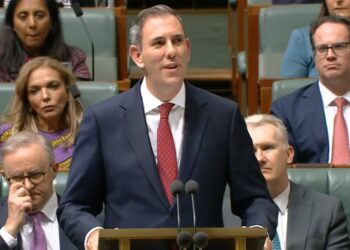In a submission to the Senate’s ‘scrutiny of financial advice’ inquiry, the PIS and AAP parent company pointed out the imbalance in the regulation of financial services that sees intermediaries disadvantaged.
“It is an undoubted fact that financial advice laws have the highest levels of prescription and regulation than any other area within financial services,” the statement from Centrepoint said.
“Other people and entities involved in the provision of financial products and services do not have an equivalent level of prescription or detail over their conduct requirements.”
While the ASX listed financial services company does not support a “loosening of the current financial advice laws”, it draws the Senate’s attention to the “unjustifiably inconsistent” regulatory regime, which allows responsible managers of investment schemes and directors of unlisted companies greater regulatory freedom.
“There would certainly appear to be a disproportionately greater risk for financial advisers than for other participants in the industry, which creates a barrier to entry for financial advisers,” the submission argues.
It also suggests that the government should refrain from making additional changes to the regulation of financial advice until FOFA has matured for an appropriate period.
“As we saw with the Financial Services Reforms of the early 2000s, it generally takes three to six years for the effectiveness of regulatory reform, or at least any shortfalls, to become apparent,” it says.
“Centrepoint submits that the FOFA reforms should be given that time frame to ripen and mature before more changes are considered.”
It also argues that a FOS-like body should be established to take over responsibility for ASIC appeals from the Administrative Appeals Tribunal.




FoFA was always a compromise from what truly should have been legislated – breaking up of product manufacture & advice/distribution. Both the Banks and ISN have too much influence on both sides of Govt to see it ever happen in this country. Break up distribution & sales and you can halve the amount of paperwork needed as the conflicts disappear.
The FPA is responsible for the debacle our industry is in. I call on EVERY FPA staff member to lead the way and get yourself educated. A double degree should be a minimum standard for you or you should all resign. Education fixes everything according to your self preservation course flogging mantra so lead the way.
In addition to this great comment Its time we all played on a level playing field
Why does the ISF Industry have different legislation with regard to fee disclosure. Come on Mathias and Joe !!
Its common that many retail super funds have lower fees and or MERS than the ISF’s
Why does ASIC let this false advertising go on ???? …last week in Melbourne still going on
Peter
[quote name=”Gerry”]There’s no forward planning in FoFA…no goal in sight other than to punish the industry and make advice to the public even less accessible. If that was in fact the intended outcome, then congratulations everyone involved…for nothing.
A team of practitioners could have come up with an effective solution, but somehow our opinions don’t count, everyone else is an expert. Make risk commissions all level , make people opt-in, a national exam etc etc…..what the….a whole stack of poorly conceived and biased influences that lead nowhere. It resembles something my dog left on the lawn.[/quote]
I find it facinating that the very people that are insisting on higher educational standards for advisers dont have any minimum educational standards for themselves? These same people are running the country and making decisions that effect all Australians!
There’s no forward planning in FoFA…no goal in sight other than to punish the industry and make advice to the public even less accessible. If that was in fact the intended outcome, then congratulations everyone involved…for nothing.
A team of practitioners could have come up with an effective solution, but somehow our opinions don’t count, everyone else is an expert. Make risk commissions all level , make people opt-in, a national exam etc etc…..what the….a whole stack of poorly conceived and biased influences that lead nowhere. It resembles something my dog left on the lawn.
Is FOFA not the DOUBLE standard of all double standards?
The regulations now in Place have put small dealer groups (OF AR model) of 300 or less in a position of only having 2-3 options for PI. Sooner or latter truly independent groups will not exist, they will not be able to afford the PI or it will simply not be available.
Lawyers are not even regulated to this extent, what professional is?